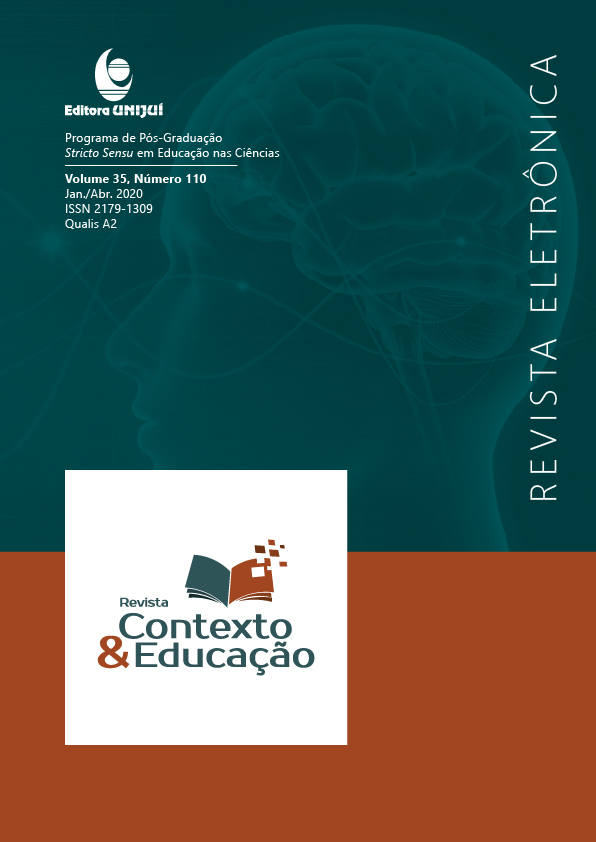RESEARCH OF THE ITSELF PRACTICE IN THE SCIENCE TEACHING IN INVESTIGATIVE SEQUENCES (IS) THE NOTIONS OF PHYSICAL CONCEPTS WITH ELEMENTARY SCHOOLS STUDENTS
DOI:
https://doi.org/10.21527/2179-1309.2020.110.66-85Keywords:
Learning. Physical knowledge. Investigative Sequences. Reflexive practiceAbstract
This paper brings a master's research performed by the first author who considered her own teaching and learning process as the study object. The objective was to analyze the development of two investigative sequences (IS) in the construction of students' physical knowledge about the phenomenon of the floating of bodies in the water, reflecting on their teaching practice. The research was carried out with her students from the 4th year of elementary education in the school were the teacher works and the process was recorded in video and noted in the teacher's field diary. Two investigative sequences on which the students were led to actively develop concepts related to the studied phenomena through experimentation and collective reflection, were performed. As a result it was evidenced that the participating students were able to exercise reflective thinking, to create and test their hypothesis on problem solving, to broaden everyday concepts about the phenomenon of fluctuation and to develop autonomy related to their own learning process. It was also possible for the teacher to improve her classes through analyzes, mediations and systematized reflections in the investigative process of the practice itself.
Keywords: Learning. Physical knowledge. Investigative Sequences. Reflexive practice
Downloads
Published
How to Cite
Issue
Section
License
By publishing in Revista Contexto & Educação, authors agree to the following terms:
All works are published under the Creative Commons Attribution 4.0 International License (CC BY 4.0), which allows:
Sharing — to copy and redistribute the material in any medium or format;
Adaptation — to remix, transform, and build upon the material for any purpose, even commercially.
These permissions are irrevocable, provided that the following terms are respected:
Attribution — authors must be properly credited, a link to the license must be provided, and any changes made must be indicated.
No additional restrictions — no legal or technological measures may be applied that legally restrict others from doing anything the license permits.
Notices:
The license does not apply to elements that are in the public domain or covered by legal exceptions.
The license does not grant all necessary rights for specific uses (e.g., image rights, privacy, or moral rights).
The journal is not responsible for the opinions expressed in the articles, which are the sole responsibility of the authors. The Editor, with the support of the Editorial Board, reserves the right to suggest or request modifications when necessary.
Only original scientific articles presenting research results of interest that have not been previously published or simultaneously submitted to another journal with the same purpose will be accepted.
Mentions of trademarks or specific products are intended solely for identification purposes and do not imply any promotional relationship by the authors or the journal.
License Agreement (for articles published from October 2025): Authors retain the copyright to their article and grant Revista Contexto & Educação the right of first publication.


